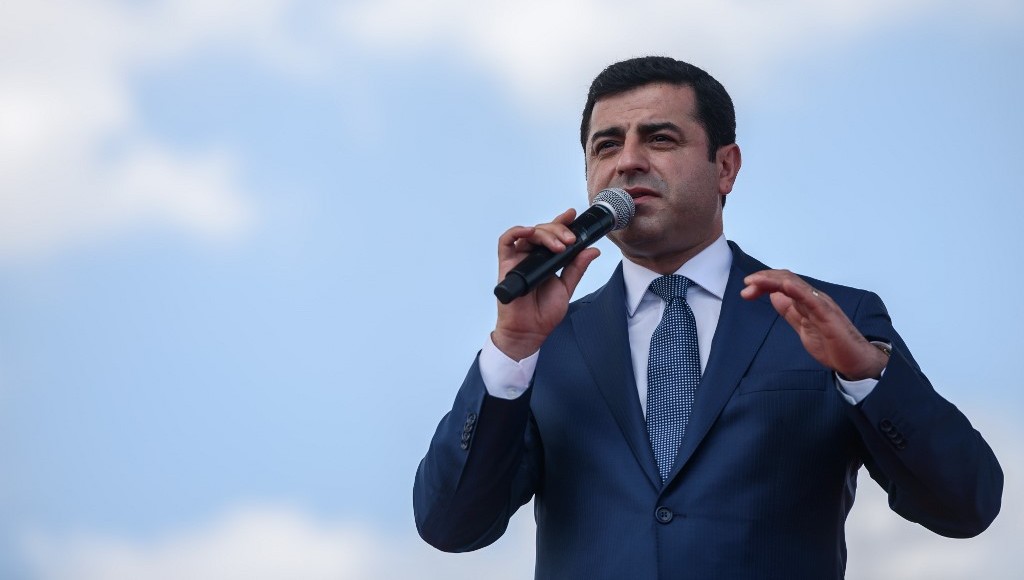Jailed Kurdish politician Selahattin Demirtaş has said he would win the 2023 presidential election even in prison if he were nominated as the joint candidate of the opposition parties.
“If I were the joint candidate of the opposition, I would win the election even in jail. However, some people outside still believe that this fraudulent government can win the election by deceiving the public,” Demirtaş said in a tweet on Thursday from his personal Twitter account, which is managed by his lawyers.
Demirtaş was co-chairperson of the pro-Kurdish Peoples’ Democratic Party (HDP) when he was arrested in November 2016. He has been behind bars since then despite a European Court of Human Rights (ECtHR) ruling in November 2018 that Demirtaş’s pre-trial detention was political and ordering his release. Turkish courts refused to implement the ruling, and a regional appeals court in Turkey subsequently upheld a prison sentence handed down to Demirtaş for disseminating terrorist propaganda.
Demirtaş was an outspoken critic of Turkey’s ruling Justice and Development Party (AKP) and its leader, President Recep Tayyip Erdoğan, before he was jailed. He ran in the presidential elections of 2014 and 2018 as a rival to Erdoğan. Demirtaş conducted his election campaign from jail for the 2018 election.
Although Erdoğan, who is now serving his second term in the top state post, will be the presidential candidate of the Public Alliance, comprising his AKP, the far-right Nationalist Movement Party (MHP) and the Grand Unity Party (BBP), the opposition alliance, the Nation Alliance, consisting of the CHP, the İYİ (Good) Party and some small opposition parties, has not yet revealed who their presidential candidate will be.
The president is elected for a five-year-term in Turkey under the presidential system of governance, to which Turkey switched from a parliamentary system following a referendum in 2017. The new system went into effect following Erdoğan’s election in 2018, granting the president vast powers while weakening the parliament and the separation of powers.



